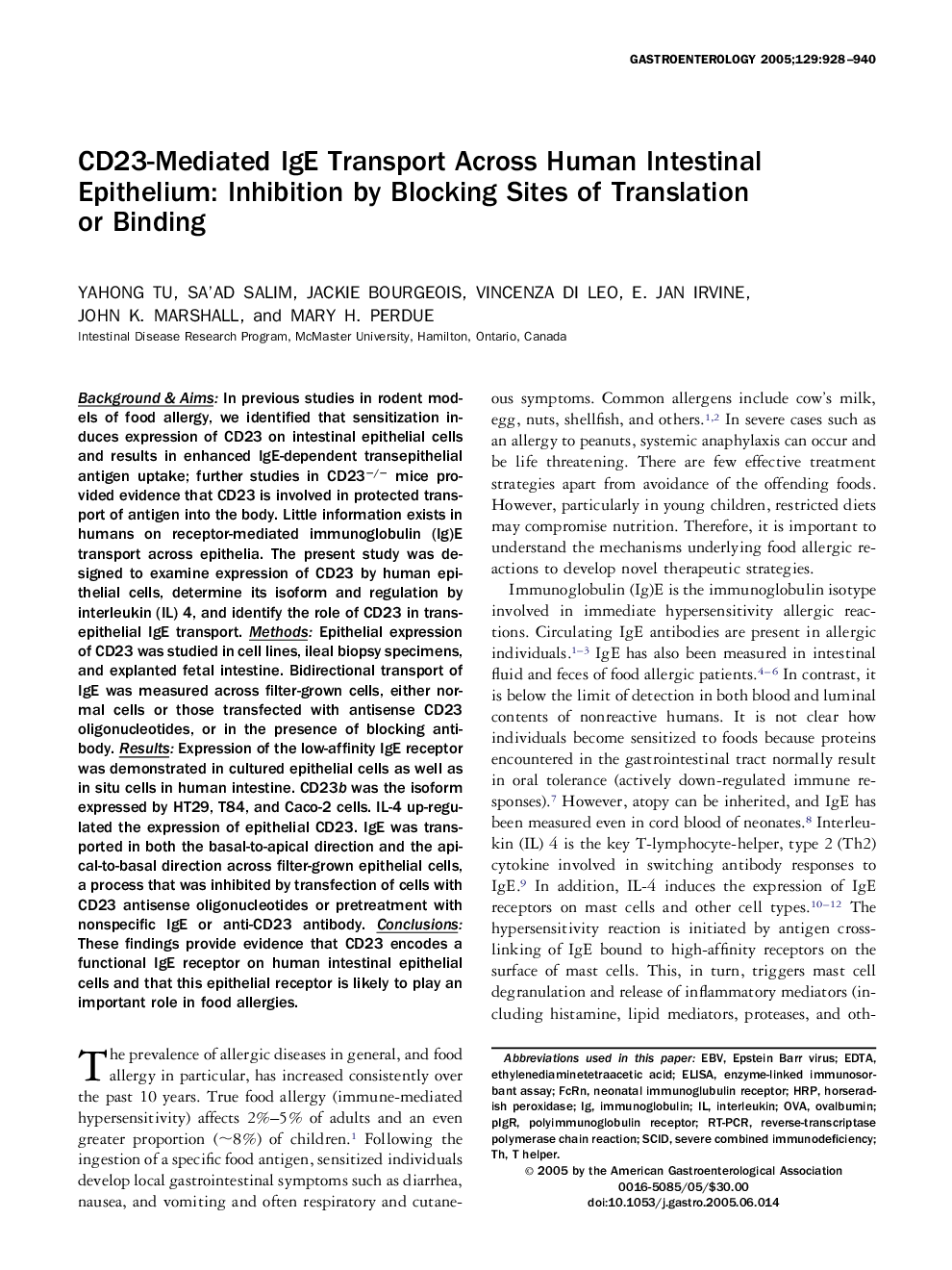| Article ID | Journal | Published Year | Pages | File Type |
|---|---|---|---|---|
| 9244215 | Gastroenterology | 2005 | 13 Pages |
Abstract
Background & Aims: In previous studies in rodent models of food allergy, we identified that sensitization induces expression of CD23 on intestinal epithelial cells and results in enhanced IgE-dependent transepithelial antigen uptake; further studies in CD23â/â mice provided evidence that CD23 is involved in protected transport of antigen into the body. Little information exists in humans on receptor-mediated immunoglobulin (Ig)E transport across epithelia. The present study was designed to examine expression of CD23 by human epithelial cells, determine its isoform and regulation by interleukin (IL) 4, and identify the role of CD23 in transepithelial IgE transport. Methods: Epithelial expression of CD23 was studied in cell lines, ileal biopsy specimens, and explanted fetal intestine. Bidirectional transport of IgE was measured across filter-grown cells, either normal cells or those transfected with antisense CD23 oligonucleotides, or in the presence of blocking antibody. Results: Expression of the low-affinity IgE receptor was demonstrated in cultured epithelial cells as well as in situ cells in human intestine. CD23b was the isoform expressed by HT29, T84, and Caco-2 cells. IL-4 up-regulated the expression of epithelial CD23. IgE was transported in both the basal-to-apical direction and the apical-to-basal direction across filter-grown epithelial cells, a process that was inhibited by transfection of cells with CD23 antisense oligonucleotides or pretreatment with nonspecific IgE or anti-CD23 antibody. Conclusions: These findings provide evidence that CD23 encodes a functional IgE receptor on human intestinal epithelial cells and that this epithelial receptor is likely to play an important role in food allergies.
Keywords
Related Topics
Health Sciences
Medicine and Dentistry
Gastroenterology
Authors
Yahong Tu, Sa'ad Salim, Jackie Bourgeois, Vincenza Di Leo, E. Jan Irvine, John K. Marshall, Mary H. Perdue,
